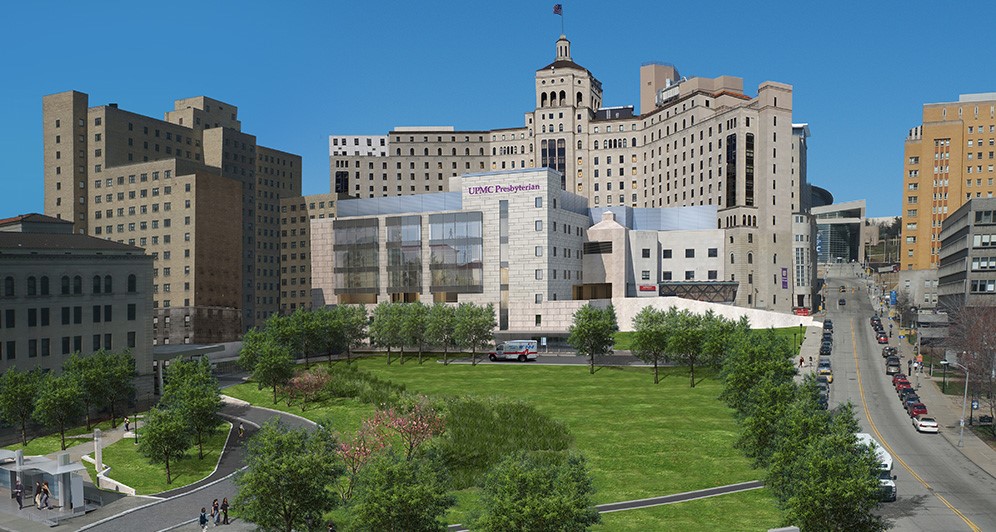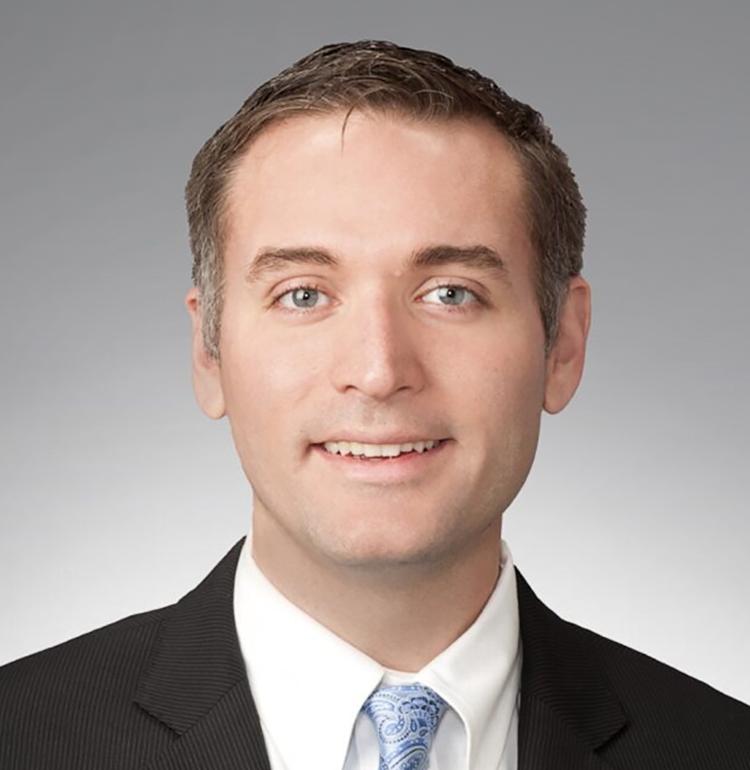
A PGY2 health-system pharmacy administration residency builds upon PGY1 residency graduates’ competence in the delivery of patient-centered care and in pharmacy operational services to prepare residents who can assume high level managerial, supervisory, and leadership responsibilities.
Site/Location
UPMC Presbyterian Shadyside
Program Purpose
A PGY2 health-system pharmacy administration and leadership residency builds upon PGY1 residency graduates’ competence in the delivery of patient-centered care and in pharmacy operational services to prepare residents who can assume high level managerial, supervisory, and leadership responsibilities.
Areas of competence emphasized during the program include safe and effective medication-use systems, quality assurance, the management of human resources, the management of financial resources, use of technology, and advanced leadership. The residency lays the foundation for continued growth in management and leadership skills with the expectation that with fifteen years of successful pharmacy administration practice, the residency graduate should be ready to assume directorship of a large hospital or health system pharmacy. Upon graduation, residents are prepared for a clinical or operational management/supervisory role in a variety of work settings including small to mid-size hospitals, large health systems, and pharmacy benefit management organizations.
Mission
The purpose of PGY1/PGY2 UPMC Health-System Pharmacy Administration & Leadership Residency Program is to prepare pharmacists to assume leadership positions in pharmacy practice through cultivations of administrative aspects and skills of clinical, operational, and financial domains of pharmacy. This includes inventory management, automation and central pharmacy operations, operating room operations management, sterile products management, regulatory affairs management, controlled substance management, compliance, and team collaboration with multidisciplinary groups.
What makes us unique?
UPMC Presbyterian Shadyside, Presbyterian Campus is an academic learning center and serves as the flagship hospital for UPMC. Located in the heart of Oakland, UPMC Presbyterian is an adult medical-surgical referral hospital and a site of ongoing research and graduate programs in conjunction with the University of Pittsburgh. Our hospital is a renowned center for organ transplantation and a recognized leader in cardiology with specialties in Cardiothoracic surgery, Critical care medicine, Trauma services, and Neurosurgery. We are designated as a Level I Regional Resource Trauma Center, (there are now 113 centers) as a nationally certified Comprehensive Stroke Centers, and as a Comprehensive Pulmonary Hypertension Center.
Practicing at one of the nation’s leading health centers, PGY1/PGY2 UPMC Health-System Pharmacy Administration & Leadership residents have the opportunity to develop an impressive clinical acumen during their first year, and take a deep-dive into pharmacy leadership opportunities throughout their second year. The program prides itself on its historic relationship with The University of Pittsburgh School of Pharmacy, and offers a unique Mastery of Teaching Recognition, as well as ample opportunities to precept learners. With such a wide variety of opportunities to pursue, the program makes deliberate efforts to understand the passions of its learners and prepare them to enter the workforce among the top in their fields. Health-System Pharmacy Administration & Leadership graduates have a storied history of success given the wide variety of leadership opportunities available, and continue to advance the profession with each generation of learners.
Program Overview
- Direct Patient Care and Pharmacy Practice:
-
The resident will have the opportunity to rotate through a variety of clinical care rotation blocks in order to develop and refine pharmacy practice skills with multidisciplinary teams.
- Team Management:
-
The resident will be expected to lead operational and/or clinical work groups in order to create solutions for real issues facing the pharmacy department. This included managing a regularly scheduled meeting and work group attendees, providing a framework for discussing and idea exchange, assigning responsibilities to stake holders, and ensuring accountability and results.
- Human Resource Management:
-
The resident will be expected to take part in all aspects of human resource management including, hiring, corrective action, counseling, and terminations.
- Operations/Automation Management:
-
The resident will develop a strong understanding and working knowledge of all aspects of the pharmacy clinical and technical systems within UPMC Presbyterian inpatient pharmacy. They will be exposed to multiple automation devices that include but are not limited to RobotRx, MedCarousel, Acudose, and Narc Vault.
- Inventory/Procurement/Shortage/Controlled Substance Management:
-
The resident will be exposed to all aspects of medication inventory management including ordering, ensuring appropriate storage, implementing shortage mitigation strategy, and ensuring appropriate regulatory compliance.
- Sterile Products Management:
-
The resident will learn the workflow and operations of the sterile products area including medication admixture, chemotherapy admixture, appropriate beyond-use-dating, appropriate sterile technique, and assuring regulatory compliance.
- Research:
-
Residents will complete a research project during the year that is expected to be of their own work, of a publishable nature and eligible for submission to a national medical organization for poster or presentation.
- Teaching:
-
Residents will have the opportunity to participate in the Mastery of Teaching Certificate Program. Residents will precept doctor of pharmacy students. Many teaching opportunities are available in conjunction with the University of Pittsburgh School of Pharmacy in a wide variety of teaching modalities.
- Professional Presentations:
-
Residents are assigned to present twice during UPMC Pharmacy Grand Rounds (PGR). PGR is a weekly, ACPE-accredited, departmental continuing education series for pharmacists. Sessions are provided in a lecture format, with Q&A session at the end. Active learning strategies are encouraged, including, interactive questions, periodic assessments with the audience, or case-based teaching. The required presentations are (1) a 45-50 minute clinical controversy topic that includes analysis and critique of published literature, and (2) a 10-15 minute clinical pearl or clinical program pearl that includes brief review of the literature or practice guidelines, clinical program, and/or patient case(s). The purpose of PGR is to provide the residents with an opportunity to give a formal presentation for faculty, peers and students that could be used during an employment interview or platform presentation at a professional meeting. Residents receive immediate verbal and written feedback.
- Requirements for Program Completion:
-
Requirements for successful completion of the first year of the program can be found under PGY1: Pharmacy - UPMC Presbyterian.
Requirements for successful completion of the second year of the program will be provided at the applicant’s request.
- Manual/Policy and Procedures :
-
Will be provided by the program at the applicant’s request.
Employment Information
Start Date: July 1
Term of Appointment: 24 months
Stipend and Benefit Information
Number of Positions: 2
Yearly Stipend: PGY1 $50,038, PGY2 $53,589
Paid Time Off: 20 days paid time off per year
Benefits: Health, dental, eye care, life, and disability
Travel: Amount is determined yearly and may not cover all travel expenses
Application/Interview Information
Applicants must have completed a Doctor of Pharmacy program from an accredited school of pharmacy and be eligible for Pennsylvania licensure. Resident is required to obtain Pennsylvania licensure no later than 120 days from starting the program.
An on-site interview is required. Candidates are required to submit application materials through the Pharmacy Online Residency Centralized Application Service (PhORCAS) by December 31st.
- Must be registered for the ASHP Residency Matching Program
References: We request a minimum of 4 references and ask that at least one of the four references come from preceptors with whom the applicant has worked in a direct patient care setting. The preceptor should be able to comment on the applicant’s responsibilities, patient workload, clinical problem-solving abilities, and time management skills. We require that one of the four references come from a preceptor, manager or administrator with whom the applicant has worked within a leadership type of role or responsibilities. This person should be able to comment on the applicant's ability to engage with others, work as part of a team, lead or manage a project, and general leadership attributes of the applicant.
All reference writers must use the standard PhORCAS reference template and provide comments on a minimum of 7 of the 15 characteristics in the spaces provided. A letter of intent along with a curriculum vitae and transcripts must be submitted as part of the application process. An interview is required and may be in the form of an on-site visit or other location at the discretion of the program director with or without a phone screening in advance.
This residency site agrees that no person at this site will solicit, accept, or use any ranking related information from any residency candidate.
Meet Our Team
Residency Program Director
Thomas A. Hebert, PharmD
Senior Manager of Pharmacy Operations
Preceptors
- Lynn Bates, RPh – UPMC Presbyterian Shadyside
- Thomas Hebert, PharmD – UPMC Presbyterian
- Tyler Hoffman, PharmD – UPMC Presbyterian
- Heather Johnson, PharmD, BCPS – UPMC Presbyterian
- Amanda Korenoski, PharmD, MHA, BCCCP
- Rachel Marini, PharmD, BCIDP – UPMC Presbyterian
- Trisha Miller, PharmD, MPH, BCACP
- Ryan Rivosecchi, PharmD, BCCCP
- Emily Schartner, PharmD – UPMC Presbyterian
- Joseph Simpson, PharmD, MBA, BCPS – UPMC Presbyterian
- Janine Then, PharmD, BCPS – UPMC Presbyterian
- Nathaniel Tost, PharmD – UPMC Presbyterian
Current Residents
PGY2 UPMC Health-System Pharmacy Administration & Leadership Residents
- Michael Mast, PharmD
- Ryan Tober, PharmD, MPH
PGY1 UPMC Health-System Pharmacy Administration & Leadership Residents
- Marsa Esmaeili Koosej, PharmD
Past Residents and First Positions
|
2024 |
Michael Mast (Pharmacy Manager, Hematology/Oncology Operations, Atrium Health Wake Forest Baptist) |
|
2023 |
Matthew Jackson (Lead Pharmacist - Transplant, UPMC Presbyterian Hospital) |
|
2022 |
Joseph Simpson (Lead Pharmacist – Pre-Op/PACU, Operative, and Infusion Center Services, UPMC Presbyterian Hospital) |
|
2021 |
Madison Postlewaite (Lead Pharmacist, UPMC Mercy Hospital) |
|
2020 |
John Fawzy (Post-Doctoral Fellow of Pharmacy Information and Data Analytics, Omnicell) |
|
2019 |
Benedicta Asamoah (Safe Medication Management Fellow, Institute for Safe Medication Practices) |
